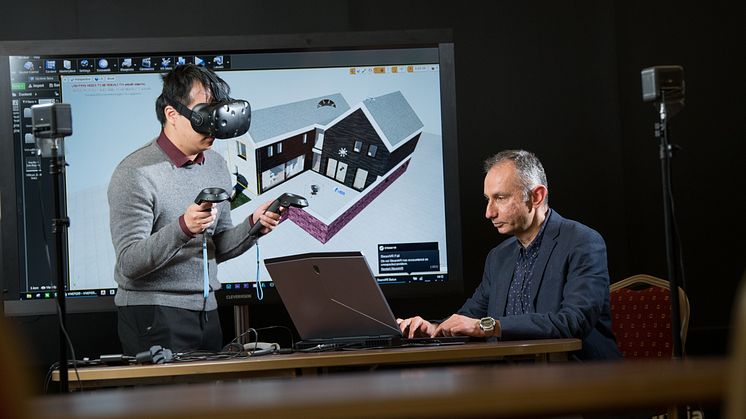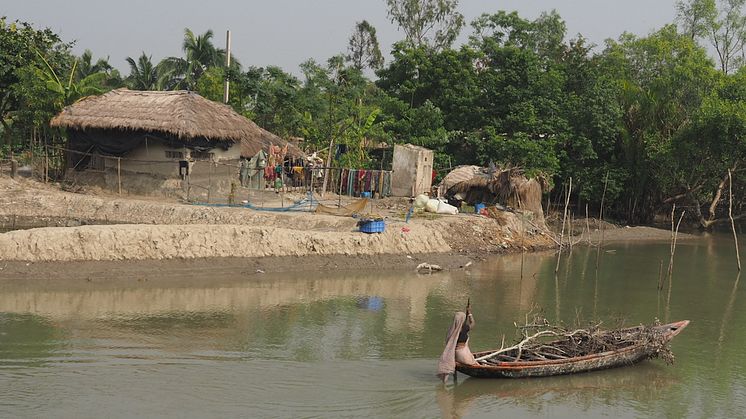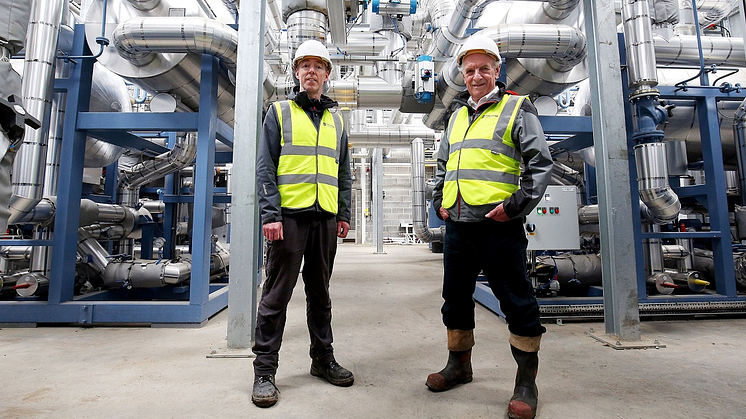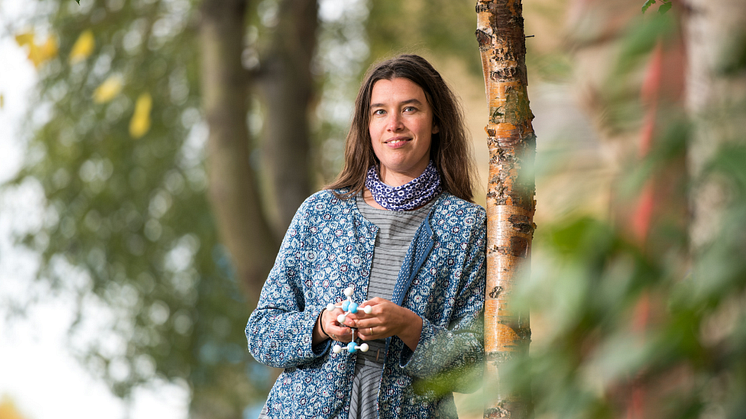
Press release -
Virtual reality tool that helps people to assess household carbon emissions to go on display at COP26
As the leaders of hundreds of countries prepare to descend on Scotland to join the COP26 Climate Change summit, a Northumbria University academic is busy with his own preparations to join the conference, where he will showcase his innovative virtual reality device that could help to revolutionise the construction industry.
With the building and construction sector responsible for almost 40% of the world’s energy use and process-related carbon emissions, all efforts to decarbonise it are critical to achieving the Paris Agreement commitment to limit the rise in global temperature.
As an expert in sustainable construction in Northumbria’s Department of Architecture and Built Environment, Dr Zaid Alwan realised that visualising the impact of carbon in homes and buildings from day-to-day activities and energy use was the next step forward for the construction industry.
With new digital technologies changing the way we live and work, Dr Alwan was inspired by his children’s immersive online gaming.
The senior lecturer decided to try to recreate the 3D immersive reality environment used within virtual reality applications to allow people to navigate spaces and see how much carbon was being used in buildings.
He has developed the Digital Energy Estimation Tool (DEET) which utilises VR immersive reality to help architects, construction professional developers, planners, and even members of the public assess where energy is being used within buildings and make changes to make them more environmentally friendly. It can also be applied to larger scale developments, including at a city planning and infrastructure level.
The DEET tool will help building and construction companies address the climate challenge objectives set by the UK government to bring all greenhouse gas emissions to net zero by 2050.
The UK COP26 Universities Network has selected Dr Alwan to exhibit the DEET tool to the thousands of attendees expected at COP26, including world leaders, government representatives and businesses – all of whom are there to discuss and agree ways to bring climate change under control.
Dr Alwan hopes that when people can physically see the effects of climate change within a room or building, they will be more inspired to play their part in addressing it.
He explained: “A lot of people associate climate change with natural habitats but in fact, a lot of the damage that comes is actually from the buildings themselves and the energy we use in our day-to-day activities.
“We have the embodied carbon impact, from the materials used within the construction of the building, and the process to manufacture them, and we also have the operational carbon impact which comes through the energy we use for heating, cooking, and powering household appliances.
“We’ve developed a tool which actually visualises the total energy consumption, both operational and embodied, in a specific building.”
By wearing an everyday PC-powered virtual reality headset and controllers, people are able to walk-through homes and buildings to get a real feel of the amount of energy being generated by household appliances and heating systems, as well as understanding the carbon impact of materials used within the building itself.
As the DEET tool analyses the energy going into building materials, anyone renovating a house or kitchen could evaluate the space and materials used and consider new ways to develop the building that may have less environmental impact.
“If you are refurbishing your house and replacing maybe a specific type of wood or considering putting granite worktops in your kitchen, our tool will help you to visualise the carbon impact of this,” said Dr Alwan.
“Granite is a good example – as a dense, heavy material which is likely to have been imported from another part of the world, it has a much higher environmental impact. When we visualise the full-life cycle impact of this we can then consider substituting it for a material that can be sourced more locally, or which has a lower environmental impact.
“When people understand the importance of reducing carbon and can easily visualise ways to do it then we can hopefully take actions and reduce the amount we buy and use.”
Dr Alwan beat off stiff competition from hundreds of researchers across the UK to be selected by the COP26 Universities Network to exhibit at the conference. He will travel to Glasgow with his former research assistant Mingyu Zhu to showcase the DEET tool.
He added: “I’m very excited to be exhibiting at COP26 because it’s a very important part of developing greater impact of our research, and knowing people get to use it and apply it.
“For this topic to be accepted it has to be something used in the mainstream. I believe the fact that we are using VR gaming as a hook to get people into understanding and evaluating emissions is huge and very forward thinking and I think this was definitely one of the reasons why I was selected by the UK Universities Network to exhibit at COP26.
“I hope that my time at COP26 will allow me to bring back fresh ideas on how to challenge climate change for our students – our future architects and construction professionals – and also for my colleagues.”
Northumbria is one of the leading universities in the UK for using digital technologies to drive change, innovation, and transformation in the construction industry.
Dr Alwan’s background is in building engineering and Building Information Modelling in architecture, and he is passionate about improving the carbon performance of new and existing buildings. He was supported in developing the DEET tool by the Centre for Digital Built Britain (CDBB), which considers the wider effects of the digital agenda on society and the economy.
The Centre for Digital Built Britain is a partnership between the Department of Business, Energy & Industrial Strategy and the University of Cambridge to understand how the construction and infrastructure sectors could use a digital approach to better design, build, operate, and integrate the built environment.
For more information on Northumbria University's work in the fight against climate change, visit www.northumbria.ac.uk/livesustainably
Topics
Categories
Northumbria is a research-rich, business-focused, professional university with a global reputation for academic excellence. Find out more about us at www.northumbria.ac.uk --- Please contact our Media and Communications team at media.communications@northumbria.ac.uk with any media enquiries or interview requests ---













